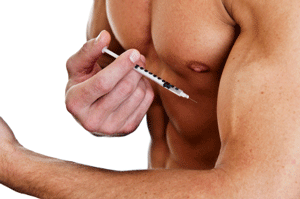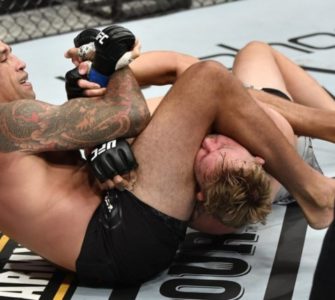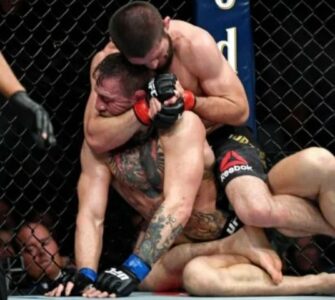BJJ Legends Magazine published a very interesting about PEDs in BJJ surveying close to 700 BJJ players worldwide.
Author:Matthew Corley,RPh
Here is a summary of the findings:
“Some numbers to note: 143 of 690 people said they had used performance enhancing drugs (PEDs) in the past. That is 20%. Demographically, white belts and black belts were the least likely to have used PEDs.
Abstract:
There is a persistent perception in high-level BJJ competitions that many medal winners are using steroids and other PEDs to succeed. This article collates the opinions of nearly 700 BJJ practitioners and provides a detailed breakdown of the opinions of those participants based on their demographics.
Insight from current and former world champions was also solicited for a first-hand perspective on PED usage at the highest level. The bios of the subject matter experts are available by hyperlink at the end of the article under the acknowledgements section.
On September 3rd, 2012 an anonymous survey was created and publicized at numerous online message boards, blogs, Facebook, and Twitter. Over the next eight days 695 people participated in the survey. The questions were designed to get basic demographic information and to determine the participant’s perceptions on the (mis)use of steroids and other PEDs by athletes that practice Brazilian jiu jitsu. The survey consisted of the following 10 questions:
- What is your gender?
- What is your age?
- What is your BJJ rank?
- How often do you train?
- How often do you participate in private lessons?
- How often do you compete in BJJ tournaments?
- If you could get steroids legally, would you?
- Have you ever used anything that could be considered a performance enhancing drug (PED)?
- What are some of the dangers of steroid use?
- What percentage of medalists at high-level completions (ADCC, Pans, Worlds, etc) do you think use steroids?
As a supplement to the survey well-known BJJ competitors, instructors and bloggers were contacted with four open-ended questions on the same topic. Responses were gathered from black belt world champions (current and former), current black belt competitors, respected instructors and BJJ bloggers. Their questions were:
- Why do you think people are turning to PEDs (performance enhancing drugs) for BJJ competitions, especially when there is little or no money?
- How do you feel about people using testosterone legally to compete?
- If you found out one of your long-time students had started using PEDs, what would you do?
- Other than testing at tournaments, how do you think the BJJ community can stop the use of PEDs?
Introduction:
Survey demographic breakdowns can be found in tables 1 & 2. The survey participants were consistent with what is typically seen in many BJJ gyms across the country. Most participants are men, aged 18 to 35, white belts or blue belts and train three to four times weekly.
|
Demographics for PED and BJJ Survey (table 1) |
|
|
Males |
613 (88.8%) |
|
Females |
77 (11.2%) |
|
<17 years old |
14 (2.0%) |
|
18-25 |
185 (26.7%) |
|
26-35 |
362 (47%) |
|
36-45 |
141 (20.3%) |
|
46-55 |
25 (3.6%) |
|
56-65 |
3 (0.4%) |
|
66+ |
0 |
|
White Belt |
220 (31.7%) |
|
Blue Belt |
251 (36.2%) |
|
Purple Belt |
142 (20.5%) |
|
Brown Belt |
45 (6.5%) |
|
Black Belt |
22 (3.2%) |
|
No rank/Other |
14 (2%) |
|
Training Frequency and Composition (table 2) |
|
| Up to twice weekly | 118 (17.0%) |
| Up to four times weekly | 358 (51.6%) |
| Five or more times weekly | 218 (31.4%) |
| Weekly private lessons | 31 (4.5%) |
| Several times monthly | 33 (4.8%) |
| Monthly | 35 (5.1%) |
| Several times yearly | 57 (8.2%) |
| Once or twice yearly | 118 (17.1%) |
| Never | 418 (60.4%) |
Findings:
The results of the survey were divided into several categories to determine the differences and similarities between groups within the same overall population. The groups consisted of those that answered that they would use steroids if available legally, athletes that compete three or more times yearly, experienced practitioners (purple belt and above), white belts and finally participants that indicated that they have previously used PEDs.
When asked if they would use steroids if they were legally available 21.7% (n=150) of those polled said that they would. For comparison nearly as many said they weren’t sure (n=128). Nearly half of those that answered in the affirmative felt that sterility, heart attacks and other serious health risks were all associated with steroid use. There were female respondents (4 of 77) and athletes 17 and younger (3 of 14) that responded in the affirmative as well. The age breakdown was very similar to that of the overall survey and was slightly skewed away from the 18 to 25 year old group and towards the 36 to 45 year old. When adjusted for overall participation most of those that answered they would use TRT most were blue belts (56 of 251), purple belts (45 of 142) and brown belts (12 of 45). Black belts were the least likely to use TRT (<10%).
There are two areas where the athletes that would use TRT differ significantly from their peers. The first is that over half admitted to prior PED use (53.3% vs 20.7%) and 60.7% (vs. 35.3%) feel that the majority of medalists at high-level grappling events are using steroids.
An active competitor is defined as someone that competes 3 or more times a year (n=260). The active competitor differs from the overall sample group in frequency of training (over half of them train at least five times a week), slightly higher frequency of private instruction, and frequency of previous PED use (24.7% vs. 20.7%). The group is mostly blue belts (36.5%) and purple belts (25.4%). They are very similar to the overall population when asked if they’d use legal steroids and were only a little more inclined to believe that high-level grapplers are using PEDs.
Experienced practitioners are those that have achieved the rank of purple belt or higher in BJJ (n=209). Not surprisingly they tend to train more often than the overall group and compete a little more often as well. Looking at their stance on legal steroids and previous steroid/PED use is where this group starts to separate itself from the others. Less than half said that they would not use steroids even if they were legal. 28.5% said they would use them and 22.7% said they weren’t sure. Previous usage of PEDs is highest in this group with 28.5% of respondents answering that they have used PEDs in the past. When asked what percentage of medalists at high-level competitions use steroids, nearly half (47.1%) responded that the majority medalists use steroids and nearly a third (32.0%) think that between 26% and 50% use steroids to compete successfully.
The responses of white belts (n=220) were reviewed to see how those new to the sport view competitive BJJ and steroid/PED use. White belts tended to be younger than the general population and their training frequency was also less, with three to four days a week training being the most common response (52.5%). These participants were also the least likely to compete (33.8% never compete) and when they did compete it was less often (38.4% compete once or twice a year) than other belt rankings. When asked if they would use steroids legally, they were less likely to answer yes (15.1% vs. 21.7%) and also were less likely to have used PEDs in the past (13.8% vs. 20.7%). White belts were less likely to believe that medalists of high-level competitions use steroids, with 56.4% believing that more than a quarter of more medalists use steroids vs. the overall group response of 68.0%. Of the 3 respondents that thought that all medalists were steroid free, two belonged to this population subset.
The final grouping to be reviewed is those that have indicated previous PED use (n=143). This group has very similar demographics (age, rank, training frequency, etc). The only notable exceptions are gender (there were only 3 women in this group), and a somewhat higher frequency of competitions per year. Just over half of this group (55.9%) stated that they would use steroids if available legally. The group felt that steroids were less likely to cause significant health risks that the overall group (29.8% vs. 14.4%). When polled about the use of steroids by medalists at high-level competitions more than half (51.4%) felt that that majority of medalists use steroids and a third (33.1%) felt that between 26% and 50% do.
A common theme among the individuals that I approached as subject matter experts is their belief that competitors feel they need to win at all costs. BJJ is unique among most martial arts because we train at nearly 100% with our partners nearly every day; we compete constantly, if not in a tournament then in our gyms. Competition is a way of life for us.
“We are competitive creatures…It’s power, performance and prestige” Roy Dean
We can see from the survey that the participants that have used PEDs and/or would use steroids if available aren’t competing more than the group. So why do they do it? We hear a lot about medal chasers but what of the belt chasers. The relatively high incidence of purple and brown belts that say they’d use steroids suggests that the next promotion is just as important as the medals.
Almost every subject matter expert that responded the open ended questionnaire said that they felt the need for increased education on the dangers of steroids, PEDs and drug use. The poll data shows that the majority of respondents understand that there are serious health risks (85.6%). The evidence suggests immediate success is more important than long-term safety and health.
Black belts and white belts polled where the least likely to have used or to use PEDs in the future. Is this because they’ve already established themselves within the art and feel they have nothing to prove, quite likely with the black belts. Or because the culture that we’re a part of hasn’t yet taught them that, “winning isn’t everything, it’s the only thing” (Vince Lombardi).
What are your thoughts on athletes using legal TRT to compete?
“It’s not even in the rules…It’s not illegal but it is immoral” Felipe Costa
“I think (it) is their option to use it…people free of drugs will have a disadvantage” Hannette Staack
“I compete to see who is the best at BJJ, not the strongest” Caio Terra
“I have no issue with people using it in non-combative sports….Combat sports are another kettle of fish! You’re putting another’s life in the balance.” Liam Wandi
“Totally fine. Under the supervision of a doctor, TRT is a fountain of youth for many people” Roy Dean
“These fighters are 25 and getting TRT, it’s total BS. Maybe if you are in your 40s and need for medical reasons. I still think it’s cheating to compete on steroids.” Rodrigo Comprido Medeiros
“I’m a grappler, not a judge. I have no say or real opinion on what people take or do…If it were legal, I’d probably do it. I would probably take hgh (human growth hormone) too. I’d also drink from the fountain of youth!” Jeff Glover
“Well From what I have read Testosterone replacement therapy is for older men suffering from I’ll health. Not for anyone who is competing in jiu jitsu tournaments.” Zak Maxwell
If you found out one of your long-time students had started using PEDs, what would you do?
“I would feel I had fail(ed) to (impart) this moral value to him and that he though(t) he need(ed) to cheat to become better.” Felipe Costa
“He has free will, to decide what is best for him but he should be aware of the problems that come” Hannette Staack
“That would be a discussion” Roy Dean
“If the student is older and not competing we’d talk about it and see. If it’s to compete I’d come down on him worse than his father.” Rodrigo Comprido Medeiros
Conclusion:
Many have stated numerous times that there is a need to test either randomly or at the very least test the medal winners of the Pans and Worlds. There one thing that needs to be done first. The first step is to have the federations actually make it against the rules.
“The guys winning, none of them say anything except to complain about judging. Not enough people are standing up and being heard to say it’s cheating and not ok. The feds do nothing without pressure.” Comprido
“Examples have to be made and people have to waking from their stupor on the impact this is having on our sport.” JW Wright
It is commonly believed that using steroids to compete in BJJ and submission grappling tournaments is against the rules. To date there has never been a drug test performed at the request of any grappling federation. Review of the published rule sets for the International Brazilian Jiu Jitsu Federation (IBJJF), North American Grappling Association (NAGA), S7 Submission Grappling and Abu Dhabi Combat Club (ADCC) show that none of them mention steroids or any other type of PED as a banned substance.
The elephant in the room is the opinion that there is rampant use of steroids at the highest-levels. The survey strongly suggests that as athletes become more entrenched in their study of the art of Brazilian jiu-jitsu they are more likely to use steroids/PEDs and they are more likely to believe their peers are using them as well. Their belief that steroids are used by those that are successful at the highest levels undoubtedly influences their decisions.
“Make it more prestigious to win without PEDs. Winning is everything for some people. How you win is more important to others. Clean victories are a better tribute to the art.” Roy Dean
We’re a self-regulated sport. If the magazines, federations, sponsors and leaders of the community don’t make a public stand against steroids and PEDs there will be no changes. Currently it’s not against the rules, it’s not tested and no one has ever gotten kicked out of a high-profile team or competition for doing steroids. In some ways it’s a wonder that more people are doing it, especially when you factor in the physical rigors that we all put ourselves thru pursuing the sport that we love.
If you feel that steroids should not be allowed in competitions then take a stand and support those that feel the same as you do.”

















